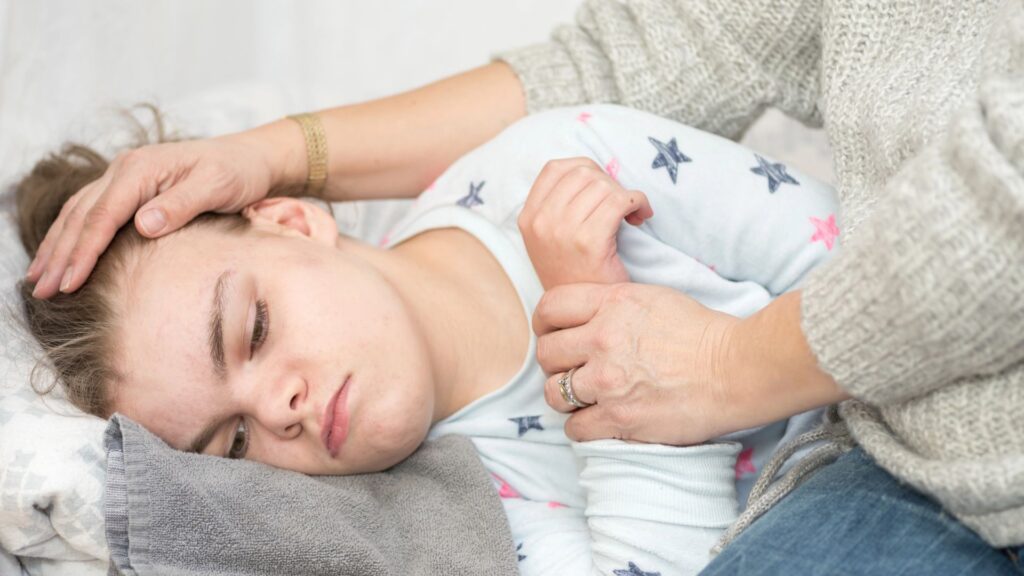 Epilepsy is a condition that results from a sudden and temporary disruption in the transmission of signals in the brain.
Epilepsy is a condition that results from a sudden and temporary disruption in the transmission of signals in the brain.
The disruption manifests itself in the form of a seizure.
The frequency and severity of seizures vary from person to person.
The application of hypnosis in patients with epilepsy seems promising.
However, hypnosis treatment must be performed by a well-trained hypnotherapist. Sometimes a cause for epilepsy can be indicated and sometimes not.

Regular treatment generally consists of antiepileptic medication.
About 35% of patients do not respond positively enough to regular medical treatment.
This may be a reason for people to seek complementary alternative treatments.
A comprehensive overview can be found in the book Complementary and Alternative Therapies for Epilepsy.
This book was written by a trio of doctors specializing in neurology and psychiatry, among other fields.
The alternative treatments are described in detail and provided with comments and conclusions.
To name a few examples: Meditation, Neurofeedback Therapy, Ayurveda, Acupuncture.
This book contains a number of starting points for serious thinking about hypnosis and epilepsy.
Stress and epilepsy
Patients report that stress and stressful events can affect the degree and severity of seizures.
Clinical research on individual cases shows that in these anecdotal cases there is a strong relationship with stress-related seizures.
Here, the specific stress factors have not yet been unambiguously identified and require further investigation.
Suffering from epilepsy per se is a stressor, and too much stress or poor coping with stress in particular is problematic for people suffering from epilepsy.
Factors that contribute to having an epileptic seizure more quickly, such as insufficient sleep, hyperventilation, being overtired and too much exertion, are more common when a person is stressed.
In a major study with 149 adults, stress was indicated as the most important factor prior to a seizure.
Therefore, additional emphasis is placed on methods to reduce stress.
Autogenic training
Autogenic training is a method of relaxation developed by Johann Schultz, a German neurologist, and is a form of self-hypnosis in which the person gains a high degree of physical and mental control over themselves.
Preliminary research shows positive results using autogenic training. Aromatherapy Self-control appears to be an important factor in several studies for reducing or preventing, to a greater or lesser extent, an epileptic seizure.
General effects are described as relaxing, releasing anxiety and cognitive changes.
For the person, it does not matter what works, as long as it works.
Smelling a specific scent seems to inhibit that part of the brain from which the seizures occur.
By smelling the scent of jasmine, for example, olfactory memory takes over and suppresses or prevents a seizure.
The interesting thing about this is that mere memory of the smell is enough to stop the seizure, without smelling the smell itself.
Book on hypnosis in epilepsy
The authors of *Complementaryand Alternative Therapies for Epilepsy* warn patients against using hypnosis, in part because of the influence of hypnosis shows and movies.
Nevertheless, they consider hypnosis a safe therapy for people with epilepsy when performed by a properly trained hypnotherapist.
During induction, they use relaxation techniques rather than those that can cause a startle effect.
The hypnotist deliberately avoids situations or states that could trigger a seizure, making a thorough intake interview essential.
Bringing back from hypnosis is then done slowly and carefully.
Aromatherapy combined with hypnosis
In their book, the authors explain how to create an anchor between the relaxation of hypnosis and smelling an essential oil such as jasmine.
This technique allows the patient to evoke the same relaxation at home simply by smelling the jasmine.
They also describe a study in which 100 patients who received hypnosis treatments combined with aromatherapy and massage for a year showed impressive results.
Of these patients, 38 remained completely seizure-free, 31 experienced a 50% reduction in the number of seizures, while 25 noticed no effect and six even experienced worsening.
Summary about hypnosis in epilepsy
Hypnosis, autogenic training, self-hypnosis whether combined with aromatherapy or not seem promising for people with epilepsy.
It is important to seek a well-trained hypnotherapist and to have the treatment of an epilepsy patient in conjunction with a physician or other medically qualified professional.
For hypnotherapists, it is important to find out if local laws allow the treatment method or ensure that a referral letter is available.


